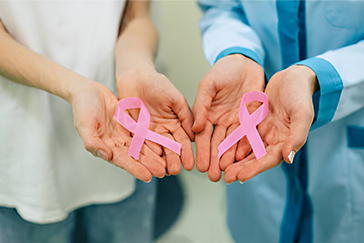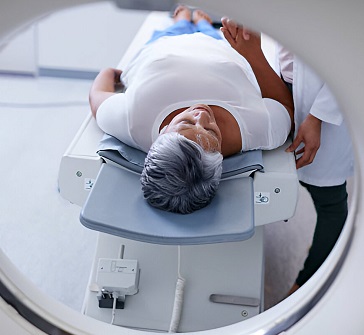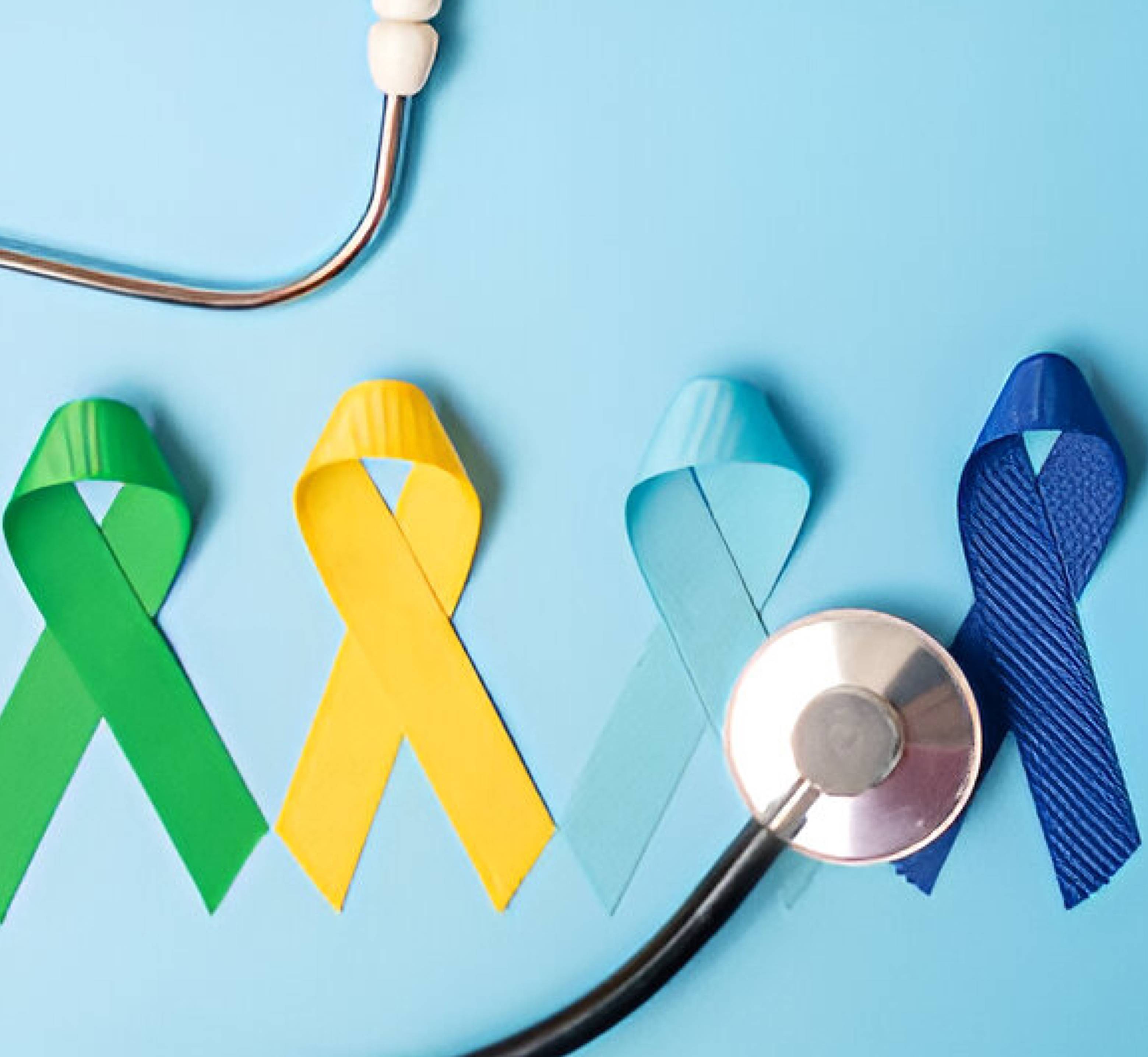 Book Appt.
Book Appt.
 Call Now
Call Now


Introduction
Breast cancer is one of the most frequent malignancies in women and those who were born female. Tumors develop when malignant cells proliferate in the breast. Approximately 80% of breast cancer cases are invasive, which means the tumor can spread to other regions of the body. Breast cancer mainly affects women over the age of 50, although it can also affect younger women and those with AFAB. Breast cancer can develop in men as well as people who are designated male at birth (AMAB).
Breast cancer types
Cancer kinds and subtypes are determined by healthcare experts to adapt treatment to be as successful as possible while causing the fewest number of negative effects. The most common kinds of breast cancer are:
Less common breast cancer types include:
Breast cancer subtypes
Healthcare providers classify breast cancer subtypes by receptor cell status. Receptors are protein molecules in or on cells’ surfaces. They can attract or attach to certain substances in your blood, including hormones like estrogen and progesterone. Estrogen and progesterone help cancerous cells grow. Finding out if cancerous cells have estrogen or progesterone receptors helps healthcare providers plan breast cancer treatment.
Symptoms
The illness may have a wide range of effects on your breasts. Certain breast cancer symptoms are easily identified. Some parts of your breast may appear to be drastically different from the others. There may not be visible symptoms of breast cancer. However, when this happens, the following symptoms may appear:
Causes
Breast cancer occurs when breast cells transform into malignant cells that proliferate and replicate to form tumors. They are unsure what causes the metamorphosis. However, evidence suggests that various risk factors may increase your chances of developing breast cancer. These include age, gender, family history, genetics, smoking, consuming alcoholic beverages, obesity, radiation exposure, and hormone replacement therapy.
Diagnosis
To detect breast cancer, healthcare providers may do physical examinations or request mammograms. However, they utilize the following procedures to diagnose the disease: breast ultrasound, breast magnetic resonance imaging (MRI) scan, breast biopsy, immunohistochemistry test to screen for hormone receptors, and genetic tests to discover mutations that cause breast cancer.
Management and Treatment
Although surgery is the primary treatment for breast cancer, healthcare professionals may employ additional treatments. Breast cancer operations include mastectomy, lumpectomy, and breast reconstruction. Providers may combine surgery with one or more of the following treatments: chemotherapy, radiation therapy, immunotherapy, hormone therapy, or targeted therapy.
Side effects
The most common adverse effects of chemotherapy and radiation therapy include exhaustion, nausea, and vomiting. Targeted therapy, immunotherapy, and hormone therapy all have comparable adverse effects, including gastrointestinal difficulties such as constipation and diarrhoea. People respond differently to breast cancer therapies. If you are having treatment, ask your healthcare professional about how it will affect you, including your daily life. Ask your doctor about palliative care. Palliative care helps manage breast cancer symptoms and treatment side effects, allowing you to be as comfortable as possible during your treatment.
Prevention
You may be unable to prevent breast cancer. However, you can reduce your chances of developing it. Regular self-exams and mammograms are also important for early identification of breast cancer, which is easier to treat.
Conclusion
Breast cancer is a multifaceted illness with a wide range of manifestations, risk factors, signs, and therapies. Improving outcomes is dependent on early detection by routine testing, such as mammography, and awareness of potential signs. Patients, healthcare professionals, and support networks all play critical roles in helping persons affected by this disease overcome the challenges of diagnosis and treatment to discover hope and resilience.
SHALBY Sanar International Hospitals provides extensive medical procedures backed up with our state-of-the-art technology and a team of highly qualified & experienced clinical experts.

Grade 2 Endometrium Cancer | Ms. Robiyakhon | Uzbekistan | Dr. Archit Pandit | SHALBY Sanar

Male Breast Cancer Recovery Story | Dr. Archit Pandit | Cameroon | SHALBY Sanar

Ms. Nafisa’s Inspiring Breast Cancer Recovery | Dr. Archit Pandit | Uzbekistan | SHALBY Sanar International Hospitals

Stage4 colon cancer is curable - Colon cancer with liver metastasis | Kenya | Dr Archit Pandit

Patient from Kenya Treated by Dr. Archit Pandit | SHALBY Sanar International Hospitals

Double Cancer Victory: Mrs. Salma Kapoor's Inspiring Recovery Story | Dr. Archit Pandit

Patient from Uzbekistan Treated by Dr. Archit Pandit | SHALBY Sanar International Hospitals

Patient from Uzbekistan Treated by Dr. Archit Pandit | SHALBY Sanar International Hospitals

Successful Carcinoma Buccal Mucosa Surgery of a Patient from Nigeria by Dr. Archit Pandit

Successful Colon Cancer Surgery of Mr. Faraidun Kaka Bra Amin Amin's from Iraq | Dr Archit Pandit

Miraculous Recovery of a patient from Uzbekistan battling Ovarian Cancer | Dr. Archit Pandit

Successful Cancer Detection & Surgery by Dr. Archit Pandit | SHALBY SHALBY Sanar International Hospitals

Successful Colon Cancer Treatment of a patient from Iraq by Dr Archit Pandit | Surgical Oncology

Successful Glottis Mass & Carcinoma Vocal Cord Treatment of a patient from Iraq by Dr Archit Pandit

Successful Stage 4 Colon Cancer Treatment of a patient from Kenya by Dr Archit Pandit

Surviving the Odds: 56-Year-Old's Journey with Recurrent Carcinoma Vocal Cord | Dr. Archit Pandit

Surviving Recto-Sigmoid Cancer: Mr. Syamand Ahmed's Inspiring Journey

Success Story: Iraqi Patient's Liver Tumour Treatment at SHALBY Sanar International Hospitals

Cytoreductive Surgery Success: Iraqi Patient's 30cm Ovarian Tumor Removed Safely

Beating Liver Cancer: Mr. Abdirashid's Inspiring Story

Ms. Nejood's Success Over Pancreatic Cancer: A Remarkable Journey

Transforming Smiles: Revolutionary Buccal Commando Procedure

Wide Local Excision Surgery & Microvascular Reconstruction of a Cancer patient

Successful Surgery of Esophgeal Cancer

Successful Lung Cancer Surgery of Ms. Jerioth Wanjiru from Kenya

Para Thyroidectomy on Pt Jawad Kadhim Tweli from Iraq

Dr Archit Pandit discusses the fascinating case of Geeta Rani
Our doctors pen down their research findings and experiences from time to time. Their words provide deep insight into the latest techniques, technologies and other advancements in healthcare. It provides expert answers to all kinds of health questions for real-life issues.
VIEW ALL




Since the day of its foundation, SHALBY Sanar International Hospitals is committed to provide comprehensive healthcare services. It regularly organizes awareness programs in its premises and encourages outdoor healthcare activities and camps with an intent to put focus on preventive healthcare.
VIEW ALL